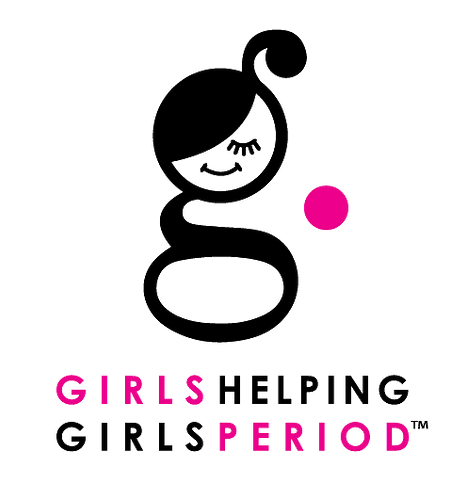A period ally is someone who does not menstruate but wants to support those who do. So first, thank you for being here.
One of the main reasons so many people in the United States deal with period poverty is because of the stigma and shame that have long surrounded menstruation. Across centuries, cultures, and countries, people are indirectly taught that this natural, extraordinary function of their bodies is something they should hide.
Boys and men are often excluded from conversations and lessons about period facts as if they play no role in reproduction. The result is that girls* learn, through whispers and insults, that it is unhygienic and inappropriate to speak about openly.
Girls Helping Girls. Period. is working hard to break those cycles, along with individuals and organizations around the globe, but we will never succeed without the support of allies like you. This guide is designed for anyone who wants to learn more about menstruation or is looking for guidance in teaching others about this natural act.
The Facts. Period.
Typically non-menstruating students are ushered out of a classroom when female reproduction is discussed. Health education classes are superficial in most schools, and boys rarely learn about periods at all. Below are some basic facts about periods:
- Periods are a natural and healthy part of life for those who get them.
- Some cisgender women (assigned female at birth) do not get periods for various reasons, including medical conditions, menopause, stress, and hormone therapy.
- All bodies change in various ways as they go from being children to adults. Menstruation is part of the process for those with a uterus, and we often call it a period.
- Periods come about once a month when the uterine lining is shed. Blood and fluids naturally leave the body through the vagina, a process that can take about 3-7 days.
- Periods may not come regularly for various reasons, and those who get them have no control over when they naturally happen.
- Periods can be painful, causing cramps, headaches, fatigue, and other symptoms, some of which can be quite severe.
- Once a person starts to get a period, it means they are fertile; they can get pregnant.
There are many ways to deal with periods, including pads, tampons, and menstrual cups. Pads are attached to underwear to absorb blood after it leaves the vagina. Tampons are inserted into the vagina to absorb blood. Most pads and tampons are disposable. They are used one-time, for a few hours, and are discarded, and a new one is used. Pads and tampons can cost about $ 10 per month. Menstrual cups are made of silicone and inserted into the vagina to collect menstrual fluids. They are reusable for up to a decade and cost as little as $20. There is no waste associated with menstrual cups as there is with disposable products.

Shaming or teasing anyone about their period, mood, or behavior is unacceptable. Period. Physical side effects of getting a period can range from inconvenient and uncomfortable to painful and debilitating. These symptoms should be taken seriously all the time. Even if you know you are only teasing about something the recipient may not find offensive, you create an environment where that kind of thing is tolerated, and it sets a bad example for others. Often people will tell you they are not offended for fear of further judgment.
While using slang words to refer to periods is not necessarily insulting, it is generally best to refer to them as periods. Using the proper word lets others know you are an accepting ally. You recognize menstruation is a natural process that does not need to be hidden.
People of all genders can be allies, and allies must recognize that people of all genders can menstruate. Regardless of gender identity or gender expression, menstruation is a natural part of life for anyone with a uterus, including those who are trans men or non-binary.
Why you need to understand PMS
Premenstrual Syndrome (PMS) is characterized by a wide range of symptoms and can cause minor to severe discomfort in the days leading up to a period. Symptoms can include cramps, mood swings, headaches, bloating, abdominal pain, acne, diarrhea, constipation, fatigue, and depression, among others. A majority of people who menstruate deal with some of these symptoms; most continue to work, go to school and live their lives in spite of them.
It is never acceptable to make fun of someone exhibiting these symptoms or accuse someone of “PMS-ing,” which is generally a euphemism for someone seeming moody or irrational. In fact, the symptoms of PMS are real, and poking fun is a way of invalidating what others feel and experience. Take a look at this ad by U by Kotex that shows how stereotyping can play out.
Everyone Should Talk About Periods, Openly
Unfortunately, the lack of open discussion about periods has created a society where some believe periods are dirty, embarrassing, or shameful. They are none of those things! Menstruation is a natural, healthy event that shows a body is functioning properly. Without periods, pregnancy would be impossible, and where would any of us be without that?
Periods are a necessary part of reproduction, and we all need to understand how that works in order to make smart, healthy choices.
Your understanding will go a long way in making those who get periods feel more comfortable being themselves. Many boys appreciate learning about what their menstruating peers deal with, and some carry a few tampons or pads in their backpacks to help out a friend who may not have what they need.
*We acknowledge that not all girls and women menstruate, and not all those with periods are girls and women.


